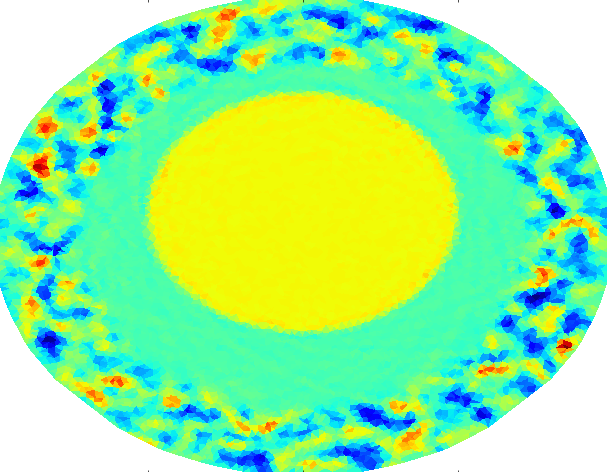LMS Joint Research Group
Inverse Problems: Theory and Applications
Organisers:

About
In inverse problems we try to recover an unknown \(x\) from some given data \(d\). A very general mathematical model for this situation is $$d = F(x) + \epsilon$$ where we have a known "forward map" \(F\) giving a model of how the data are related to the parameters to be determined, and some random noise \(\epsilon\) representing errors in measurement. In many cases, the forward map F itself involves solving a differential equation, or some other type of problem. Researchers working on inverse problems may attempt to devise algorithms to find \(x\) given \(d\), or may study properties of this equation for specific instances of \(F\).
Applications of inverse problems are numerous and appear in physics, engineering, biology, and medicine, but also many other areas. One attractive aspect of inverse problems for mathematicians is that research in the field spans the gamut from pure to applied, and readily allows for collaboration between researchers working on theoretical questions with those working on computational or applied problems.
The main function of this group is to plan workshops and short, one-day, courses across the United Kingdom on inverse problems. With these workshops we hope to:
- Build a strong research network in inverse problems within the UK, and foster connections with research groups abroad.
- Help to connect isolated researchers in the field who may be the only ones at their university working in inverse problems.
- Provide opportunities for young researchers including PhD students and post-docs to learn from experts outside their own universities, and begin to build a network of contacts.
- Promote the UK as an international centre for cutting edge research on inverse problems.
Each meeting will be jointly funded by the London Mathematical Society (LMS), and the local institution.
Workshops
- LMS workshop on geometric inverse problems at the University of Manchester.
- LMS/Turing workshop on inverse problems and data science at the University of Edinburgh.
- LMS short course: Introduction to the Bayesian approach to inverse problems at the University of Edinburgh.
- LMS workshop: Variational methods meet machine learning at the University of Cambridge.
- EPSRC Inverse Problems Network Meeting/LMS Workshop on Inverse Problems
- Workshop in microlocal analysis at the Alan Turing Institute.
- LMS Workshop: Bayesian Inverse Problems at the International Centre for Mathematical Sciences.
Links
Here we provide links to inverse problems related groups and resources.
- IPIA the Inverse problems International Association
- The journal Inverse Problems
- The journal Inverse Problems in Science and Engineering
- The Journal of Inverse and Ill-Posed Problems
- The journal Inverse Problems and Imaging
- The Finnish Inverse Problems Society